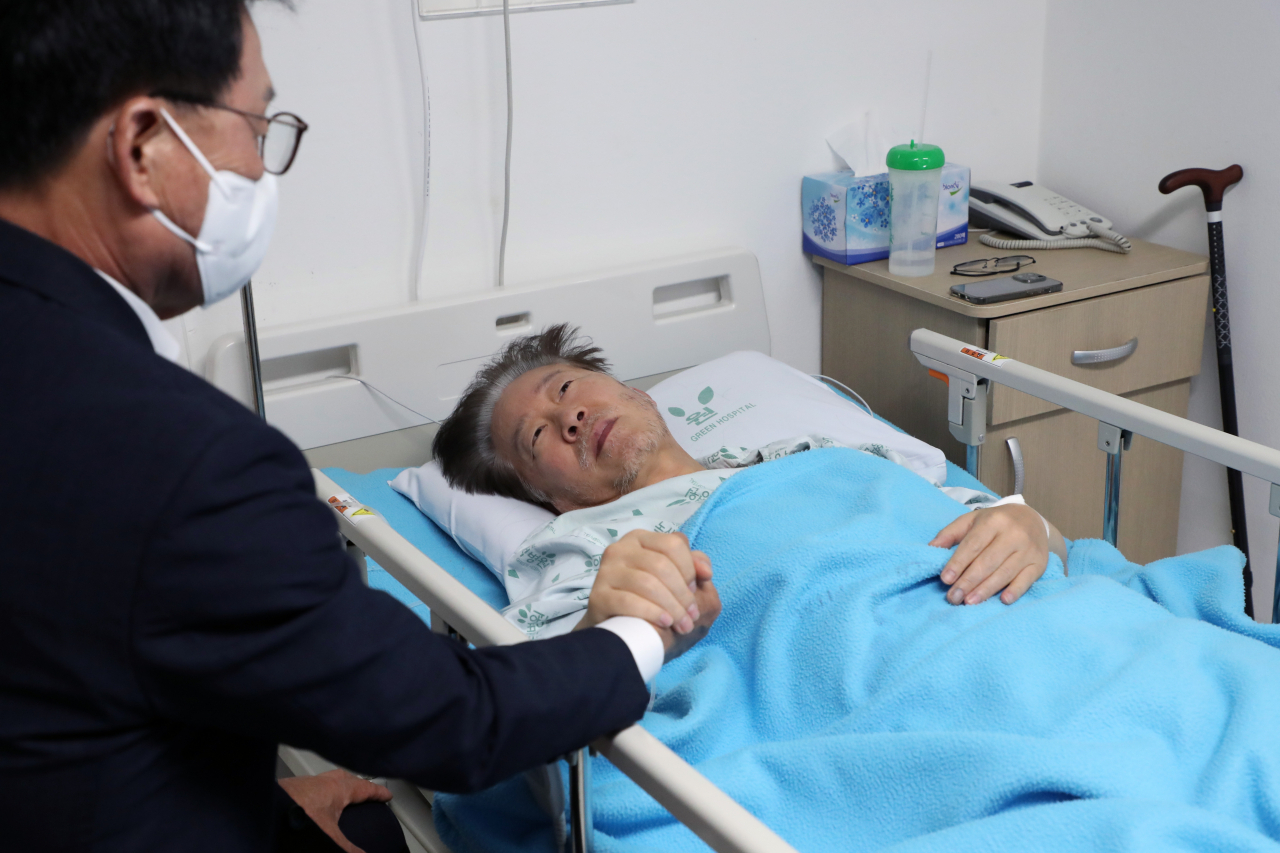 |
Lee Jae-myung, chair of the main opposition Democratic Party, is on hunger strike in his office at the National Assembly in Seoul on Thursday. (Joint Press Corp.) |
Opposition leader Lee Jae-myung will attend an upcoming court hearing on his arrest warrant on corruption charges, his party said Monday.
The hearing to be held Tuesday at the Seoul Central District Court will mark his first public appearance since ending a 24-day hunger strike on Saturday.
Lee, the chair of the main opposition Democratic Party (DP), will be accompanied by his lawyer for the hearing, DP spokesperson Kwon Chil-seung said in a briefing.
Lee has been under medical treatment after he pulled out of the hunger strike in protest of what he called the "incompetent and violent" government of President Yoon Suk Yeol.
Should the court issue the warrant, it would deal a serious blow to Lee's leadership and the main opposition party ahead of parliamentary elections scheduled for April.
The former DP presidential candidate has been accused of breach of trust, bribery and other charges stemming from his time as mayor of Seongnam, south of Seoul, years ago in connection with a scandal-ridden land development project and his alleged involvement in a company's illegal cash remittance to North Korea.
The prosecution accuses Lee of committing breach of trust worth 20 billion won ($15 million) by giving special treatment to a private developer in the Baekhyeon-dong district apartment project in the city of Seongnam, between 2014 and 2015, when he was serving as the city's mayor.
Lee is also suspected of asking Ssangbangwool Group, an underwear maker, to illegally transfer $8 million to North Korea between 2019 and 2020, when he was serving as Gyeonggi Province governor, through his deputy to facilitate his visit to the North, and push for a joint smart farm project between his province and Pyongyang.
Last week, the National Assembly voted to lift the opposition leader's immunity from arrest in a surprise, narrow 149-136 vote attributed to a number of dissenting ballots from his own party that commands a majority of parliamentary seats.
By law, sitting lawmakers are immune from arrest while parliament is in session unless the National Assembly passes a motion giving its consent to the arrest, a measure intended to shield lawmakers from political prosecution. (Yonhap)







![[Today’s K-pop] Blackpink’s Jennie, Lisa invited to Coachella as solo acts](http://res.heraldm.com/phpwas/restmb_idxmake.php?idx=644&simg=/content/image/2024/11/21/20241121050099_0.jpg)